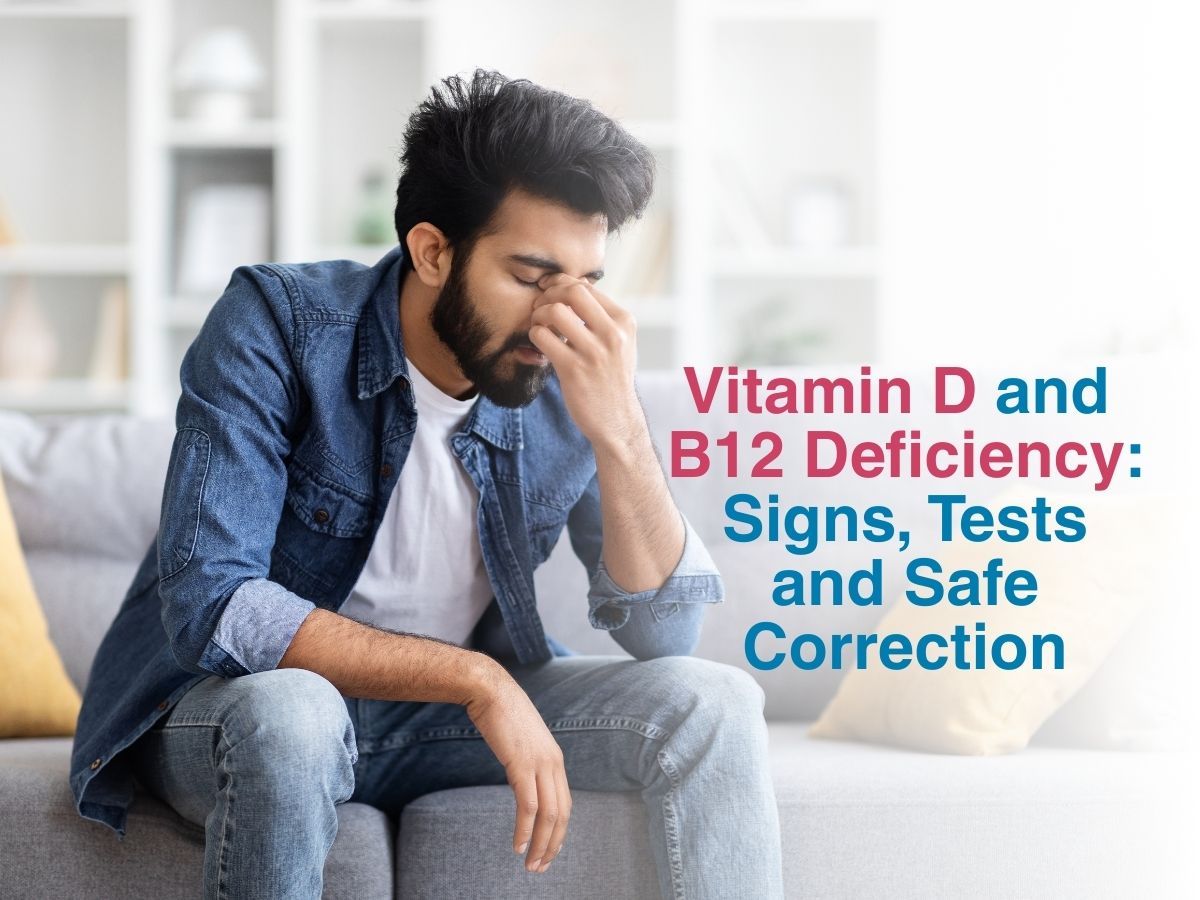
Vitamin D and B12 Deficiency: Signs, Tests and Safe Correction
What Are Early Symptoms Of Vitamin D Deficiency In Adults?
When the body runs low on Vitamin D, it does not cry out in sharp pain or send a flashing signal but instead whispers in fatigue that never truly lifts, in bones that ache on cold evenings, in muscles that feel strangely heavy during simple movements, in moods that dip like the monsoon sky, and in the immune system’s quiet stumbles that show up as colds or infections that come too often. In India, where crowded cities and long office hours trap us indoors, even though the sun is all around us, this deficiency can creep in, unnoticed until it begins to shape everyday life with discomfort.
What Diet Changes Help Correct Low Vitamin D And Low B12 Safely?
Correction is rarely born from a bottle but instead begins with the quiet grace of a plate and the sun, where Vitamin D drifts in through those soft morning rays before the heat sharpens, and where fatty fish, fortified milk and humble mushrooms lend their strength. Vitamin B12 hides in curd and paneer for the vegetarian soul, in eggs and lean meat for others. If a meal is thoughtfully designed and prepared- where each spoonful, each mindful choice and each home-cooked ritual restores what modern living often steals, then balance returns not as a miracle but feels like a rhythm regained.
What Side Effects Or Risks Should I Watch For When Taking Vitamin D Or B12 Supplements?
Supplements are often seen as harmless, but the truth is that even vitamins carry shadows when taken without guidance. For Vitamin D, excess intake can lead to nausea, constipation, kidney stress and calcium build-up that causes more harm than good. B12 supplements, though usually safer, can in very high doses sometimes trigger skin rashes or headaches. This means that the path to correction should never be about guesswork or swallowing pills out of fear but instead about checking blood vitamin levels, listening to medical advice, adjusting dosages carefully and remembering that nutrients, like medicines, work best when tailored to the body’s needs rather than when taken in blind hope.
Conclusion
The story of Vitamin D and B12 in India is not a tale of rare illness but of common patterns, of sun that is abundant yet unused, of plates that are full yet sometimes incomplete and of lifestyles that run faster than the body’s quiet needs. If we learn to read the signs early, to check our levels when fatigue and weakness linger and choose food and sunlight as our first allies and use supplements as careful tools, then deficiency need not be a burden. Instead, it can serve as a reminder that nourishment is not only about eating enough but about feeding wisely, with balance, awareness and respect for the body’s silent needs.







